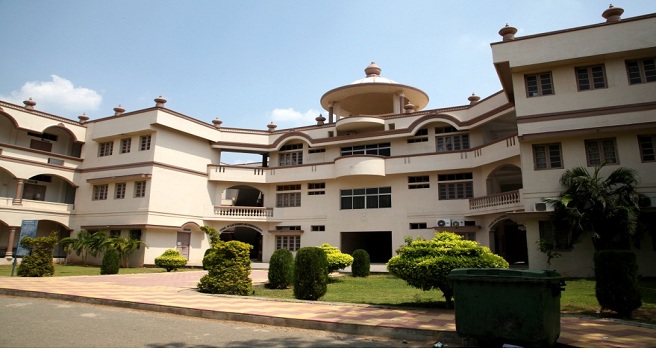COURSE DETAILS
Course Name :Chemistry
The Department of Chemistry at the RGMCET (Autonomous) constitutes a center for academic excellence. Since its inception in 1995, the department has been engaged in imparting the highest level and quality of academic education. The Department of Chemistry at the RGMCET (Autonomous) offers an innovative engineering chemistry program that is dedicated to equipping the next generation of chemists, scientists, engineers, thinkers and educators with the tools they will need to tackle these 21st century challenges. We have adequate equipment’s for carrying out research findings. The Department has well equipped laboratories in the fields of organic, inorganic chemistry, and Nano-technology. The department is accommodated with 4 doctorates having experience in their respective research areas. The department has published 94 publications in reputed International and national journals; out of them 35 are SCI, 14 are Scopus and remaining 45 in other journals. The department has organized 03 national seminars on various research topics. The department has completed has one UGC minor research project UGC-MRP-4581/14(SCRO/UGC) worth of 1.3Lakhs. The department is recognized as research Centre by JNTU (A). The Engineering chemistry lab is provided with all of the required experiments for engineering students to improve their skills and also for Ph.D research scholars.

Vision
- The Department of Chemistry at the RGMCET (Autonomous), Nandyal provides a platform of diverse and innovative educational programs that are dedicated to equip the next generation of chemists, scientists, engineers, thinkers and educators with the tools they will need to tackle these 21st century challenges.
- Through a combination of e-classroom education and front-line research endeavors, we provide our students and communities with the tools they need to help to improve our world.
Mission
- To promote excellence in research exclusively in chemistry of technology, by elucidating and controlling molecular mechanisms, paving the way for significant advances in chemistry and material sciences, and meeting the evolving technological needs of our society through the design and synthesis of new molecular systems and devices. These research activities have been facilitated by the funding of well qualified personnel through government and non-governmental funding agencies. The Department of Chemistry is also committed to arrange and support workshops, seminars and conferences within its areas of expertise.
Program Outcomes (PO's) - Engineering Graduates will be able to:
- Engineering knowledge: Apply the knowledge of mathematics, science, engineering fundamentals, and an engineering specialization to the solution of complex engineering problems.
- Problem analysis: Identify, formulate, review research literature, and analyze complex engineering problems reaching substantiated conclusions using first principles of mathematics, natural sciences, and engineering sciences.
- Design/development of solutions: Design solutions for complex engineering problems and design system components or processes that meet the specified needs with appropriate consideration for the public health and safety, and the cultural, societal, and environmental considerations.
- Conduct investigations of complex problems: Use research-based knowledge and research methods including design of experiments, analysis and interpretation of data, and synthesis of the information to provide valid conclusions.
- Modern tool usage: Create, select, and apply appropriate techniques, resources, and modern engineering and IT tools including prediction and modelling to complex engineering activities with an understanding of the limitations.
- The engineer and society: Apply reasoning informed by the contextual knowledge to assess societal, health, safety, legal and cultural issues and the consequent responsibilities relevant to the professional engineering practice.
- Environment and sustainability: Understand the impact of the professional engineering solutions in societal and environmental contexts, and demonstrate the knowledge of, and need for sustainable development.
- Ethics: Apply ethical principles and commit to professional ethics and responsibilities and norms of the engineering practice.
- Individual and team work: Function effectively as an individual, and as a member or leader in diverse teams, and in multidisciplinary settings.
- Communication: Communicate effectively on complex engineering activities with the engineering community and with society at large, such as, being able to comprehend and write effective reports and design documentation, make effective presentations, and give and receive clear instructions.
- Project management and finance: Demonstrate knowledge and understanding of the engineering and management principles and apply these to one’s own work, as a member and leader in a team, to manage projects and in multidisciplinary environments.
- Life-long learning: Recognize the need for, and have the preparation and ability to engage in independent and life-long learning in the broadest context of technological change.
